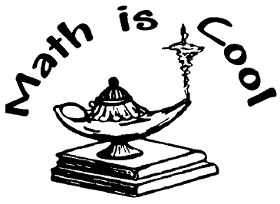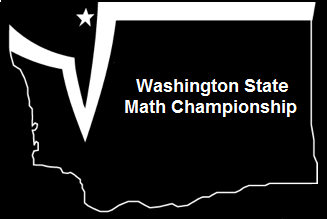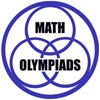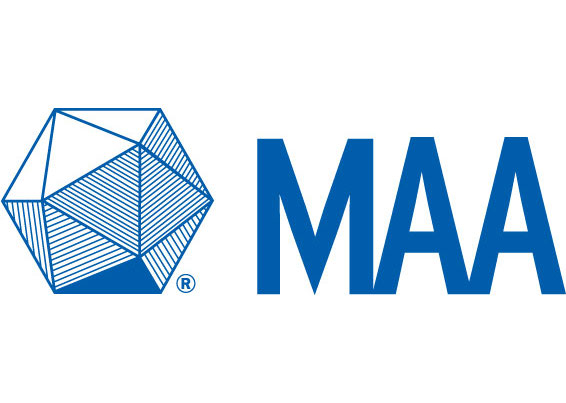Math Mentors/Coaches Project
This web page describes the Team Battelle Math Mentors/Coaches project and is primarily intended for use by Battelle staff (as well as family members and retirees). The general goals, approaches, and issues pertaining to this project are described herein. However, don't let this document constrain you—if you have an idea that fits with the general purpose of this project or you want to work with a school that is not listed here, then inquire with the project director.
For information on current events/activities, see the NEWS page.
Topics on This Page
Purpose | Motivation | Target Audience | Issues for Math Clubs | Approaches for Interactions | Project Activities | Volunteer Commitment | To Do List for Schools | Expected Issues | Competition Opportunities
Purpose
The objective of this Team Battelle project is to promote an increased level of comfort with math and/or to foster excitement about math in elementary/middle school students through several types of activities. The intent is to capitalize on the wealth of technically adept people that PNNL attracts and provide a useful service for local area schools through volunteer work.
Motivation for a Team Battelle Project Promoting Math
Math is a key underpinning for many careers, particularly in science and engineering—math is the “language” of science and engineering. It is important not only to understand the mathematical concepts, but also how to solve problems and apply knowledge to new situations. Thinking broadly, generating interest in math serves the needs of our nation and companies like Battelle by stimulating students to consider—be eager even—to pursue STEM (science, technology, engineering, math) education and careers and to become the future problem solvers that we need to address the critical issues of the day. Thus, one motivation for this project is to instill an enthusiasm for math, thereby cultivating future employees/researchers/innovators in science, engineering, and research.
Another motivation is a desire to see that students have an opportunity to explore math. In the 2009-2010 school year and recent years prior, participation in math tournaments by area schools appeared to be limited. For example, there were only 4 teams that participated in the chapter-level (regional) MATHCOUNTS® competition in 2010 (including two from Richland, one from Kennewick, and one from Connell). Participation in Math Is Cool by schools other than Carmichael and Enterprise in Richland also seems to be sporadic. Few, if any schools (other than Carmichael) participate in mail-in competitions. While several issues may contribute to limited participation, it seems apparent that Team Battelle volunteers would be beneficial in promoting math clubs and boosting school participation in math competitions.
Target Audience
There is potentially a broad target audience for this Team Battelle project, covering multiple age groups, geographic locations, and school types. As initially conceived, the target audience was public middle schools in the Tri-Cities. However, given that staff expressed interest in a wider range of ages and school types and the preference for the Richland locality, the target audience was expanded.
Middle schools (6th - 8th grades) are a good target for this project. There are many opportunities for in-person and mail-in competition at the middle school level. The middle school age is a great time for engaging students in math and science; students are starting to branch out in the scope of their studies and the idea of a future career starts to impinge on their awareness. However, it can be a challenging age because students are developing a sense of self (which is subject to social influences), are learning about responsibility, and are learning about appropriate social/interpersonal interactions.
Elementary schools are likely to have enthusiastic students, but there are fewer competition opportunities and potentially more logistical issues (i.e., elementary schools are less oriented towards extracurricular clubs). But there is no reason to exclude interactions with elementary schools as part of this project. Indeed, two considerations suggest that adding Richland elementary schools to the target audience would be worthwhile. First, there may be more staff members interested in working with schools in Richland than the existing middle schools could support. Secondly, the elementary schools feed into the middle schools, so early encouragement of interest in math benefits both the students and the subsequent level of math club.
High schools generally seem to have established math clubs and are thus not a specific focus of this project. Yet, Battelle staff interested in working at this higher level would certainly be welcome.
Private schools (which generally encompass several age groups) might be expected to have a higher degree of parent involvement, thus less in need of someone to initiate math enrichment activities. However, parents of private school students may equate to Battelle staff and there are times when a private school may need non-parental assistance.
To summarize:
Target audience = Public middle (Tri-Cities) & elementary (Richland +) schools
Ancillary audience = Private schools, Public high schools
Middle Schools in the Tri-Cities Area
Below is a map of the Tri-Cities area and the general locations of public middle schools in the Richland, Kennewick, Pasco, and outlying school districts.
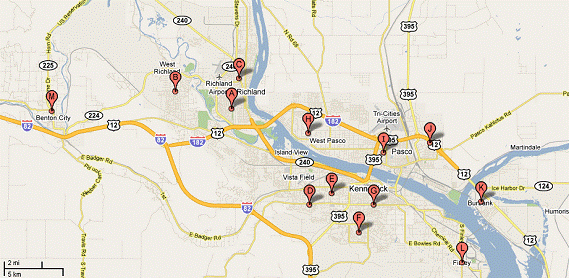

Elementary & Private Schools in Richland
Below is a map showing locations of elementary schools in the Richland School District and (at least some) private schools in Richland (locations J and K).
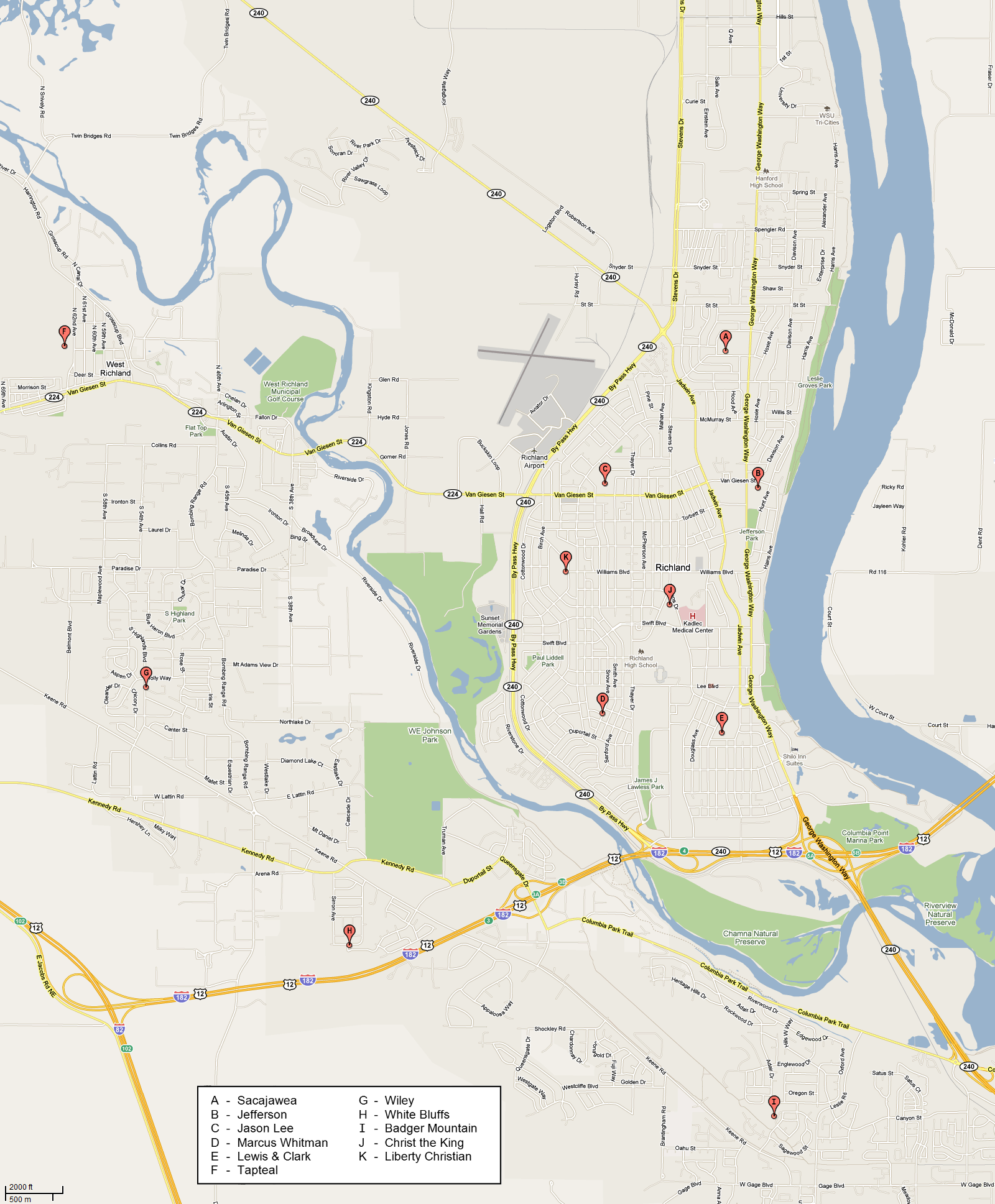
Issues Impacting Participation in Math Clubs
Key issues with implementing a math club include 1) having a math mentor/coach to lead the activities, 2) transportation to/from math competitions or club meetings, 3) evoking student interest, and 4) funding for math competitions/activities. This Team Battelle project can assist directly with the first item and indirectly with others.
The primary need that Battelle volunteers could fill would be to act as math mentors/coaches. The initial hurdle is to make the contact with the school, but once established, the Battelle volunteer fulfills the need to have a “body” to shepherd the math club and make it a worthwhile experience for the students.
The issue of transportation has two aspects to it. One transportation issue is getting students to or from club meetings and home. If there isn’t an early bus or a late bus, then a parent must fulfill that need. The other transportation issue is the cost and effort of travelling to a tournament in another city. We could undertake to indirectly address the transportation issues by 1) idea generation and 2) contributing to efforts to have regional tournaments, such as Math Is Cool and Washington State Math Olympiad, hosted here in the Tri-Cities.
Student interest is contingent on their awareness of a math club (i.e., communication with the student population), social influences (e.g., “coolness” factor, friends interested), the enthusiasm/ encouragement imparted by parents and teachers, and the priority of conflicting activities (sports, other school clubs, church, etc.). Battelle staff are not in schools on a daily basis to influence initial student interest, but we could be a resource for ideas on stimulating student interest and communicating about math/math clubs.
This Team Battelle project generally does not have resources for providing direct funding to schools. However, as individuals and as an organized network of Battelle staff linked to local schools, we could contribute by generating ideas for sources of funding. Additionally, we could be advocates to promote math clubs as a good use of funds.
Our Role in Extracurricular Math at Middle Schools
A range of approaches is envisioned for utilizing Battelle volunteers in extracurricular math activities. At a basic level, Battelle staff could be of assistance in “homework helper” or tutoring programs. The intent here would be not only to help students understand math, but hopefully impart an appreciation for the usefulness of math and the doors it opens—that is, relating “real world” experience to the math topic being studied. Presumably, most schools have an after-school homework helper program; if not, then perhaps a specific teacher needs this type of assistance. A second approach would be to have a Math Club, distinguished here as being more casual, more enrichment-oriented, than competition oriented. Correspondingly, a Math Team would be more competition oriented. The lines between club and team are not necessarily distinct; both groups would benefit from both enrichment and competition activities, but the overall focus could differ. At the highest level, “elite” math team students would be those who are very capable and are motivated to compete at a rigorous state level or national level. This high level is probably reserved for a few specific individuals, perhaps from different schools, and we would have to coordinate to have a Tri-City-wide “elite” study group. The final approach could be one of occasional utilization, such as volunteers being guest speakers.
The Math Club/Team would seem the broadest approach, including students well versed in math as well as those who are less sure about math. Students could meet for an hour per week either before or after school, during which time the coach/mentor would present math concepts, solve problems, administer tests, and lead enrichment activities. In this approach, several variants are possible. The school may have an interested staff member who would like to lead the club/team, but who perhaps needs 1) a nudge in the right direction (e.g., in the form of information resources) or 2) an assistant who helps at weekly meetings or perhaps on a monthly basis. Or perhaps the school staff member would like the role of assistant while the Team Battelle volunteer leads the activities. It may be the situation that a school staff member would like to focus on a particular group of students (e.g., 6th grade) and the Team Battelle volunteer would mentor/coach the remaining group of students. Or it may be that there is not a school staff member interested in a math club, thus the Team Battelle volunteer would be the sole mentor/coach.
In our first few years as a Team Battelle project, the Math Club coaching/mentoring has been quite effective. On the other hand, tutoring has been less successful. Despite having a number of staff members interested in doing tutoring and an enthusiastic welcome from school administrators, we have commonly experienced a lack of follow-through from the schools to make the tutoring happen. I note this not to dissuade anyone from volunteering as a tutor, but to point out that a combination of innovative approaches and tenacity may be required to make volunteer efforts as a tutor successful.
Activities for the Math Mentors/Coaches Project
As originally envisioned, the primary activity for this Team Battelle project is for volunteers to be Math Club/Team mentors/coaches. However, there is a range of math mentoring roles that could apply, as well as ancillary activities.
The following list describes potential roles for project volunteers.
- Math Team Coach – prepare students for math competitions and periodically do enrichment activities
- Math Team Assistant Coach – help the lead coach by working with a subset of students on math concepts and/or to prepare students for math competitions
- Math Club Mentor – engage students in enrichment activities (math games, movies, hands-on activities, discussion of math aspects that are interesting/cool, etc.) and prepare students to participate in one or two math competitions
- “Elite” Level Math Coach – provide rigorous preparation for math competitions, for students targeting top level state and national placement
- Math Tutor – provide help with concepts and homework in the context of the math class curriculum being studied and, as an aside, convey how and why math is useful in “real life” and even interesting in its own right
- Contest Proctor/Scorer/Supervisor – contribute to the operation of a math contest (e.g., Math Is Cool, WAMO, CMS Warm-up, scrimmages, etc.); could contribute as a “worker bee” or could go so far as to be a regional director for a contest
- Math Event Volunteer – contribute to the operation of math-related events (e.g., contests, Take Your Child to Work Day, Taste of Diversity, etc.) assisting the project director; generally a small committment
- Guest Speaker – discuss how math pertains to the “real world,” how understanding math can lead to really interesting work, and/or how math helps people solve problems; typically the discussion would be in the context of your own work
- Problem Solvers/Writers – write problems for competitions (e.g., Math Is Cool) or enrichment activities, document solutions for problems that have only answers
At some point, we might want to see about organizing a “Math Day” as an activity. Perhaps this could be in conjunction with WSU Tri-Cities and/or math/engineering societies.
Lunchtime brown bag meetings are typically held for volunteers on a monthly basis to provide a forum for idea generation and discussion. Meetings typically include information on upcoming events/activities and a chance to discuss issues (e.g., recruiting students to join a math club, working with students, addressing funding/transportation roadblocks, etc.).
What Commitment Does this Take from Volunteers?
The commitment required of a Battelle volunteer will depend on the activities undertaken, the arrangements with the school, and your interest level.
For a role as a Math Club mentor/coach, expect to conduct weekly meetings before (~7:00-8:30 AM) or after (~2:30-3:30 PM) school at a location on the school premises. Meetings should start in September and continue through mid-May (depending on the contests in which the math club participates). Meetings would be nominally an hour, during which time you would present concepts/enrichment activities, solve problems, and/or administer tests. Outside of meetings, expect to spend time grading and recording scores (½ to 1 hour per test) as well as preparing lesson plans/activities/materials for the next meeting. Time will be spent outside of meetings to prepare competition registration forms and fund request forms. Expect that you may need to accompany students to in-person competitions (to do check-in and, at some contests, help grade papers).
The commitment for tutoring will depend primarily on 1) how a school implements a “homework help” program and whether they follow through in involving volunteers, 2) private arrangements with individual parents, or 3) whether we do an “office hours” approach. Plan on at least an hour a week, which may go for just a few weeks or perhaps longer duration.
Guest speakers, problem writers, and event helpers are involved in “one-off” events that occur occasionally during the year. These range in committment from half an hour to five hours (e.g., when helping at one of the longer contests). Activities are as needed and volunteer help is solicited on the TBMMC News page/RSS feed and by e-mail correspondence.
As a Team Battelle project group, we have periodic meetings (e.g., “brown bags”) to discuss approaches, concerns, math problems, etc. I send out meeting notices and put a notice in our internal newsletter for these meetings.
What We are Looking for from Schools
The amount of effort required on the part of the school will depend on the approach that is taken (see above), but there is a modicum of effort needed, as outlined in the list below. The intent is to impose upon the school staff as little as possible, but we do need school support (“buy in”) and some assistance to work within the school system.
The school should:
- Identify a contact person or persons (e.g., teacher and/or administrator)
- Coordinate with the Team Battelle Math Mentors/Coaches project director to identify a volunteer.
- Decide on the approach that your school would like to take (math tutoring, club, team; co-coaching by school employee and Battelle staff, lead/assistant by school employee and Battelle staff (or vice versa), or Battelle staff alone)
- Identify a meeting location and time (in coordination with the Battelle volunteer)
- Communicate with students (put information in the school bulletin/announcements, arrange for place to put posters, etc.)
- Assist in administrative tasks (photocopying, rounding up forms for fund requests, etc.)
Administrative Issues that a Team Battelle Volunteer Might Expect
Staff who participate in this Team Battelle project need to be cognizant of the issues arising because the volunteer work involves children and schools. School districts have procedures and policies that proscribe the approaches to deal with volunteers and clubs. While these procedures may vary between school districts, expect to encounter the issues discussed below and similar resolutions.
Any role as a volunteer working with children will require a background check. In Richland, this is a one page form that a volunteer fills out and the school sends to the Washington State Patrol for review. This level of background check should be sufficient for a volunteer to work with students while in the presence of a school district employee.
Money is an area of concern that cannot be handled casually, regardless of your integrity or good intentions. Clubs typically fall under the purview of the Associated Student Body (ASB) and as such, the finances must be tracked in sufficient detail/organization so as to be auditable. The likely approach will be that money for a math club would be handled by administrative staff. It would be best to have a specific “account” at the school for the Math Club/Math Team. Then students could pay money into that account, fundraisers would send money to that account, and registrations would be paid from that account. Expect that fundraisers will have to be proposed to ASB for approval. For competition registration, the math club advisor will need to fill out the tournament registration form and submit it along with a “funds request” form for ASB approval. Allow sufficient time to get signatures and approvals. For online registrations, work with the staff to complete those (probably best if the math club advisor can register online, then have the school mail in payment). Be aware that not all sponsoring organizations take purchase orders; this can likely be accommodated, but may take more time for school administrators.
Determining a meeting location and time is obviously a key issue. Expect to meet at the school, probably before or after school. Meetings (e.g., for extra study) outside the school grounds are likely to be frowned upon, but check with school staff.
Lines of communication are important for recruitment, information (e.g., change in meeting day), and to laud the accomplishments of math club participants. Expect lines of communication to not be reliable at all times. Broken equipment (e.g., A/V equipment for “announcements”), forgetfulness, etc. may interfere with communications. Try to learn the process and find the best approach. Daily bulletins/announcements, direct e-mails, and/or social networking “broadcasts” could all be viable avenues for routine communications. Asking to say a few words at an assembly could be a good way to recognize student participation/achievement. Communications with parents is important, in particular for in-person tournaments involving travel.
Travel arrangements need to be made for in-person math contests. Hopefully transportation would be in the form of a school bus, perhaps shared with other schools in the district, but it may be necessary for parents to drive. When traveling, there will be forms for the students to fill out for permission and acknowledging student conduct codes. Parents driving may need to bring in insurance documents and fill out paperwork (probably only if taking students other than their own child). Students also need pre-arranged absence forms to document teacher acknowledgement and the expected assignments/homework. Anticipate that you may need to deal with a sick child while travelling and coordinate with school staff as to the appropriate response. The school nurse will likely review student files for potential issues (e.g., food allergies, medicine needs) prior to a field trip.
Sundry other issues will likely arise. For example, you may find teachers to be sensitive to your using the copy machine (since your photocopying needs may be significant at times). Or you may find different perceptions/attitudes stemming from the school “culture” (e.g., bureaucracy, union rules, etc.).
Competition Opportunities
A wide range of math competition opportunities exists for students at the middle school level. Competitions fall primarily into the categories of “in-person” or “mail-in,” both of which are described below.
In-person Tournaments (Regional, State, and National)
In-person competitions are those where students from multiple schools travel to a particular location where events are administered by the sponsoring organization. In-person contests tend to be the most fun for students because of the opportunity to visit another school, the excitement of direct competition, and the general atmosphere of a crowd of kids. Math Is Cool is probably the most fun of the in-person competitions, MATHCOUNTS has serious rewards for top competitors, the Carmichael Math Warm-up events provide “instant gradification” type awards, the Washington State Math Olympiad (WAMO) offers an interesting format and nice rewards for all who do well, and the Washington State Math Championship offers a good tournament with great “halftime” entertainment for those who make the long trek to Blaine. Several other local events (CMS Warm-ups, scrimmages) offer more casual, but fun, opportunities to try a math contest. Links to sponsors of some in-person math contests are provided below.
Mail-in Tournaments
Mail-in competitions are those where the test is administered by the math coach at the local school and scores or test papers are sent to the sponsoring organization electronically or by mail. Competitions may be a single event in the school year or a series of “meets” on a periodic basis (often monthly) that are combined for an overall score. Mail-in competitions include AMC-8, Mathematical Olympiads for Elementary and Middle Schools (MOEMS), Online Math League, and a number of others (see below). Awards range from certificates to pins/medals to trophies/plaques. Links to sponsors of some mail-in math contests are provided below.
Logo/Name Attributions
MATHCOUNTS and the MATHCOUNTS logo are registered trademarks of the MATHCOUNTS Foundation.
The MAA icosahedron logo is a registered trademark of the Mathematical Association of America.
The WSMC is the Washington State Math Council.
The CEMC is the Centre for Education in Mathematics and Computing, based in the Faculty of Mathematics at the University of Waterloo.


